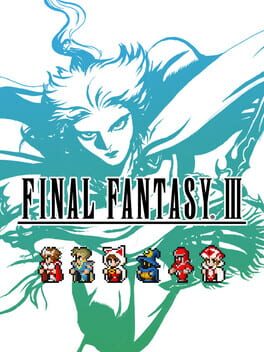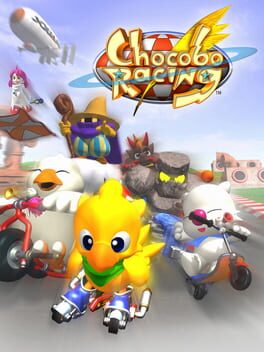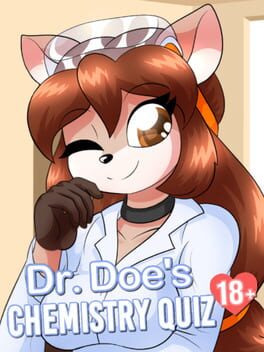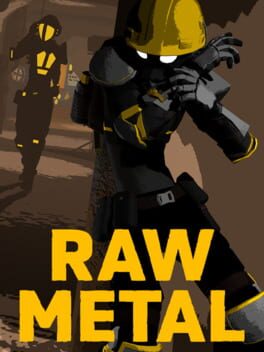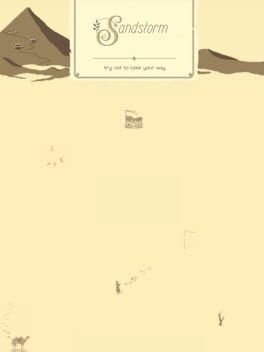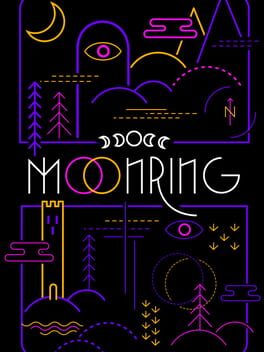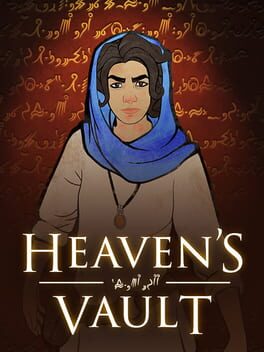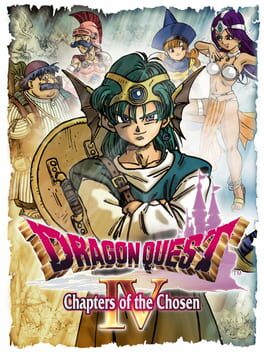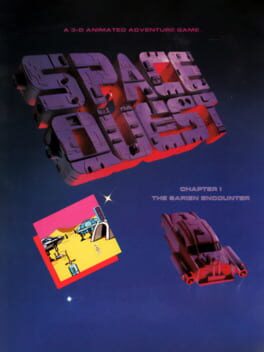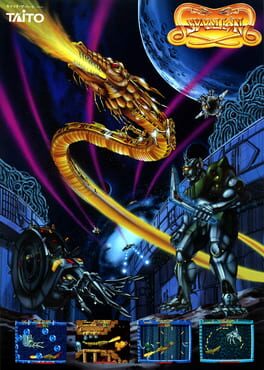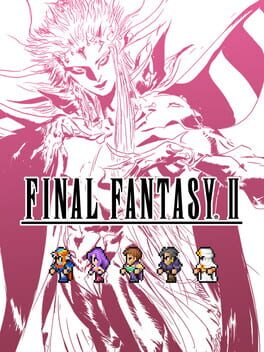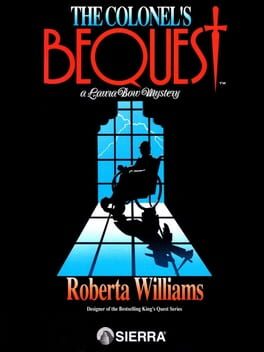lpslucasps
778 Reviews liked by lpslucasps
Final Fantasy III
2021
Mais curto do que eu esperava, com muito mais jobs do que eu esperava, a grande maioria tão inútil quanto eu imaginava. Mas é uma loucura o quanto esse jogo mais de 30 anos atrás já estava definindo de base pra todo o resto da franquia. Surreal. Uma história bem mais simples e monótona principalmente vindo do 2, mas ainda divertida e cheio de momentos muito memoráveis em particular os momentos que claramente inspiraram Minish Cap!
Chocobo Racing
1999
Um clone de Mario Kart mas feito com muito carinho e cheio de referências à franquia FF. Tem um modo história com animações, cut-scenes e músicas próprias que só reforça que todo jogo deveria ter um modo história. Acrescenta demais na experiência single player.
Extremamente desbalanceado, fases beirando o injusto, personagens com poderes únicos roubados e os itens são ainda mais roubados. Não tem limitação de item pra quem tá na frente, então é muito fácil rolar aqueles snowballs onde quem tá na frente abre uma distância absurda pros outros, mesmo tomando poderes globais um atrás do outro.
É uma excelente cartinha de amor à fãs da franquia e com certeza um jogo divertido mas pode ser bem frustrante em alguns momentos.
Extremamente desbalanceado, fases beirando o injusto, personagens com poderes únicos roubados e os itens são ainda mais roubados. Não tem limitação de item pra quem tá na frente, então é muito fácil rolar aqueles snowballs onde quem tá na frente abre uma distância absurda pros outros, mesmo tomando poderes globais um atrás do outro.
É uma excelente cartinha de amor à fãs da franquia e com certeza um jogo divertido mas pode ser bem frustrante em alguns momentos.
Raw Metal
2024
concepto y estetica interesantes ejecutado de una manera muy aburrida, despues de 3 o 4 niveles se pierde la novedad y el combate pasa solo a ser tedioso y repetitivo, los items no son mas que ajustes minimos a tus stats y el sistema que los contiene me agobio a los 30 minutos, probablemente lo voy a rejugar cuando lo terminen o hagan una update grande
Sandstorm
2015
It's that part of the game where you enter a maze-like desert where directions become confusing, except that's this whole game. And it nails it.
Minimalistic masterpiece! The game design here is absolutely stunning. Rarely do I want to replay games after beating them but the naturalness of feeling like you are getting a grip on this desert is powerful.
Minimalistic masterpiece! The game design here is absolutely stunning. Rarely do I want to replay games after beating them but the naturalness of feeling like you are getting a grip on this desert is powerful.
Elden Ring
2022
2 homens, 2 irmãos, 2 viradas de ano, 2 vidas entrelaçadas desde o nascimento, um é luz outro é trevas, um guiado pelo amor outro pelo ódio, no momento em que luz se transforma em trevas e trevas se transforma em luz seus destinos conectados enfim chegam a uma conclusão quando a carpa sobe a cachoeira pra se transformar em dragão
É muito difícil para mim colocar em palavras tudo o que amo sobre esse jogo. Acho que é um dos poucos jogos existentes que conseguiu me fazer sentir todas as emoções possíveis. É um jogo que envolve muita leitura e pode ser um pouco desgastante no começo, sim. Mas confie em mim quando falo que cada parede de texto desse jogo merece ser lida, e que toda a experiência fornecida por esse jogo vai valer a pena no final.
SOMETHING BEAUTIFUL IS GOING TO HAPPEN.
SOMETHING BEAUTIFUL IS GOING TO HAPPEN.
Moonring
2023
"Life is hard, COVID sucked, everyone's poor and stressed. I don't need the $300 this would make me: I'd rather take the goodwill." - palavras de um dos co-criadores de Fable e dev de Moonring, Dene Carter.
esse jogo é demais. uma carta de amor à Ultima e à todos nós. sempre fico super feliz e animado quando jogo algo diferente e mais ainda quando jogo algo que resgata a beleza do passado para o presente sem perder a estética! meu maior problema com remakes, reboots e afins é a perda total da estética. muda a vibe demais, mano. Dene Carter disse: AQUI NÃO!
uma delícia ficar perdido nesse mundo e ir descobrindo-o. acho muito maneiro isso de ir anotando palavras-chave pra depois juntá-las até convergirem em alguma nova descoberta. sensação maravilhosa. esse jogo ser de graça é mais uma das demonstrações do quão foda é a nossa comunidade.
esse jogo é demais. uma carta de amor à Ultima e à todos nós. sempre fico super feliz e animado quando jogo algo diferente e mais ainda quando jogo algo que resgata a beleza do passado para o presente sem perder a estética! meu maior problema com remakes, reboots e afins é a perda total da estética. muda a vibe demais, mano. Dene Carter disse: AQUI NÃO!
uma delícia ficar perdido nesse mundo e ir descobrindo-o. acho muito maneiro isso de ir anotando palavras-chave pra depois juntá-las até convergirem em alguma nova descoberta. sensação maravilhosa. esse jogo ser de graça é mais uma das demonstrações do quão foda é a nossa comunidade.
Heaven's Vault
2019
Comecei a jogar pela experiência de tradução/descoberta da língua; infelizmente a mecânica de traduzir não é baseada no entendimento e dedução pessoais das palavras, o que foi uma quebra de expectativa muito ruim.
Continuei jogando o jogo mesmo assim por causa da escrita e do worldbuilding, que são muito muito legais mesmo. É ótimo ler esse jogo
Abandonei o jogo porque o gamefeel é infelizmente horrível :'D Não tem efeito sonoro de nada e é tudo muuuuuuitooooo deeeeeeeevaaaagaaaaaaaaaaaaaaaaarrrrrrrrrrrrr
Continuei jogando o jogo mesmo assim por causa da escrita e do worldbuilding, que são muito muito legais mesmo. É ótimo ler esse jogo
Abandonei o jogo porque o gamefeel é infelizmente horrível :'D Não tem efeito sonoro de nada e é tudo muuuuuuitooooo deeeeeeeevaaaagaaaaaaaaaaaaaaaaarrrrrrrrrrrrr
Una completísima sorpresa de principio a fin.
El mundo del juego, la localización y traducción, la historia de cada uno de los personajes principales, la trama principal, el antagonista, la ambientación, la exploración tan organizada y perfeccionada del mundo, la banda sonora... Casi no tiene ningún punto flaco. Dragon Quest IV se ha convertido en uno de mis juegos preferidos sin duda alguna, completado al 100%, divertidísimo.
El mundo del juego, la localización y traducción, la historia de cada uno de los personajes principales, la trama principal, el antagonista, la ambientación, la exploración tan organizada y perfeccionada del mundo, la banda sonora... Casi no tiene ningún punto flaco. Dragon Quest IV se ha convertido en uno de mis juegos preferidos sin duda alguna, completado al 100%, divertidísimo.
Space Quest offers an interesting stylistic counterpoint to King’s Quest. Designed by Scott Murphy and Mark Crowe, guys who have prior Sierra credits as a programmer and an artist respectively, with Crowe in particular being something of a superstar who seems to have done sprite work for essentially every major Sierra franchise release for like a full decade.
Both series sit in a kind of moderately successful space between serious homage to their chosen genres and loving parody with that 80s style of MST3K-esque attitude that is inescapable in works from a certain flavor of 80s nerd culture, but Space Quest feels moderately more sober much of the time. The narrator may be as sardonic as ever, the joke may be that you’re a janitor tasked with saving the galaxy, but there’s still a great deal more mundane death and terror here than is typical of its contemporary Sierra stuff, the villains really straight laced and scary, the danger imminent and prowling. Maybe it was a conscious decision around the time - King’s Quest III would see a similar tonal shift with its slave narrative and wizard villain only a month after this game’s release.
That’s not to say there’s no humor - there’s quite a lot of it, but outside of the diner set piece and a couple of interactions with NPCs that play more like easter eggs than meaningful bits of story, it’s mostly limited to narration and fail screens. My understanding is that this becomes The Comedy Series much more explicitly than King’s Quest does so this was a bit of a surprise for me.
Space Quest feels like it carries an ambition to genuinely thrill the player, to push the limits of visual interactivity in adventure games. There are so many cutscenes in this game, so many sound effects and cinematic screens and animations. Stuff that’s genuinely breathtaking on the hardware this shit runs on, in the year it came out. This would have been thrillingly realistic stuff. It’s still cool today.
I wish it was all in service of a game that was a little less dull. Space Quest is a much more linear affair than any of the three King’s Quests I’ve played, or Colonel’s Bequest, which is fine, good even. But it did also mean that it was rare for me to find myself in a situation where I was genuinely teasing my brain, too. Environments being so closed, with so few characters to interact with and so few ways to investigate problems meant that solutions were usually immediately clear, or revealed after a relatively quick moina of the available space. This does, interestingly, mean that there’s a greater reliance on player dexterity - limiting your movement by having you be pursued by a killer robot for a quarter of the game, or a bridge that comes closer to collapsing every time you cross back and forth over it, or asking the player to avoid physical death obstacles via character movement rather than puzzle solving. These things feel somewhat artificial in the way they impede the player’s ability to progress what might otherwise be a too-simple series of puzzles, but if I were to look at it more generously, which I am always inclined to do, I would say they also feel like a young company trying to figure out fresh ways to stretch the legs of a still pretty new genre. Adventure games certainly weren’t new, but ones with GRAPHICS were, and the idea of the player character’s little avatar really having a presence beyond picking things up and putting them down properly was news! Which sounds wild but norms have to be established! This game is interacted with via a text parser.
And to its credit also I would rather a game be too easy than too hard. I think there is only one truly, genuinely evil moment where this game makes itself unfinishable, where you need to pick a piece of invisible glass up off the ground like an hour before you need it and you don’t need it until after crossing a threshold you can’t return from. This piece of glass is located somewhere I would say is only moderately intuitive to investigate, and if you don’t grab it in a very specific timeframe it becomes basically impossible to retrieve even before you can’t return to that screen.
But that’s the only one. There are other ways to fuck yourself but I think they’re much more player-faulty. It’s fine to let the player dig their own grave, I think, and these games encourage keeping like nine saves to a degree that I don’t think having these kinds of situations is really all that big of a deal - recovering progress goes quickly once you know the tricks.
I think writing about this has made me like it more, which is always a nice feeling to have, but I’m still kind of taken by a feeling of apathy, mostly. Now that I’ve tasted how much Sierra will be pushing the envelope only a couple years from now, I can’t help but go to sleep thinking of Roger Wilco, and dream of Laura Bow.
Both series sit in a kind of moderately successful space between serious homage to their chosen genres and loving parody with that 80s style of MST3K-esque attitude that is inescapable in works from a certain flavor of 80s nerd culture, but Space Quest feels moderately more sober much of the time. The narrator may be as sardonic as ever, the joke may be that you’re a janitor tasked with saving the galaxy, but there’s still a great deal more mundane death and terror here than is typical of its contemporary Sierra stuff, the villains really straight laced and scary, the danger imminent and prowling. Maybe it was a conscious decision around the time - King’s Quest III would see a similar tonal shift with its slave narrative and wizard villain only a month after this game’s release.
That’s not to say there’s no humor - there’s quite a lot of it, but outside of the diner set piece and a couple of interactions with NPCs that play more like easter eggs than meaningful bits of story, it’s mostly limited to narration and fail screens. My understanding is that this becomes The Comedy Series much more explicitly than King’s Quest does so this was a bit of a surprise for me.
Space Quest feels like it carries an ambition to genuinely thrill the player, to push the limits of visual interactivity in adventure games. There are so many cutscenes in this game, so many sound effects and cinematic screens and animations. Stuff that’s genuinely breathtaking on the hardware this shit runs on, in the year it came out. This would have been thrillingly realistic stuff. It’s still cool today.
I wish it was all in service of a game that was a little less dull. Space Quest is a much more linear affair than any of the three King’s Quests I’ve played, or Colonel’s Bequest, which is fine, good even. But it did also mean that it was rare for me to find myself in a situation where I was genuinely teasing my brain, too. Environments being so closed, with so few characters to interact with and so few ways to investigate problems meant that solutions were usually immediately clear, or revealed after a relatively quick moina of the available space. This does, interestingly, mean that there’s a greater reliance on player dexterity - limiting your movement by having you be pursued by a killer robot for a quarter of the game, or a bridge that comes closer to collapsing every time you cross back and forth over it, or asking the player to avoid physical death obstacles via character movement rather than puzzle solving. These things feel somewhat artificial in the way they impede the player’s ability to progress what might otherwise be a too-simple series of puzzles, but if I were to look at it more generously, which I am always inclined to do, I would say they also feel like a young company trying to figure out fresh ways to stretch the legs of a still pretty new genre. Adventure games certainly weren’t new, but ones with GRAPHICS were, and the idea of the player character’s little avatar really having a presence beyond picking things up and putting them down properly was news! Which sounds wild but norms have to be established! This game is interacted with via a text parser.
And to its credit also I would rather a game be too easy than too hard. I think there is only one truly, genuinely evil moment where this game makes itself unfinishable, where you need to pick a piece of invisible glass up off the ground like an hour before you need it and you don’t need it until after crossing a threshold you can’t return from. This piece of glass is located somewhere I would say is only moderately intuitive to investigate, and if you don’t grab it in a very specific timeframe it becomes basically impossible to retrieve even before you can’t return to that screen.
But that’s the only one. There are other ways to fuck yourself but I think they’re much more player-faulty. It’s fine to let the player dig their own grave, I think, and these games encourage keeping like nine saves to a degree that I don’t think having these kinds of situations is really all that big of a deal - recovering progress goes quickly once you know the tricks.
I think writing about this has made me like it more, which is always a nice feeling to have, but I’m still kind of taken by a feeling of apathy, mostly. Now that I’ve tasted how much Sierra will be pushing the envelope only a couple years from now, I can’t help but go to sleep thinking of Roger Wilco, and dream of Laura Bow.
Syvalion
1988
If you don't like the game much, I highly suggest trying to play it with a trackball. The game is designed around trackball controls, and is pretty much unplayable on nearly anything else. It becomes a LOT more fun with that in mind, and you'll appreciate it's ideas more. Before I played it again on my Egret II Mini with the trackball expansion pack, I didn't like this much either, and looking back, that was rather silly of me, for not knowing how it's supposed to be played.
Anyways, this is a cool as hell game where you're controlling a robot dragon, burning everything in its path. Designed by Fukio Mitsuji of Bubble Bobble fame, the game has his signature truckload of randomized, but deep gameplay elements, and I honestly feel it works in this game's favor better than Bubble Bobble. Quite literally, no two playthroughs are alike. You play through five randomly generated levels, and you get a randomly generated story and ending with that as well. It's surprisingly deep for it's time, and has had me coming back to it quite a lot to see what the game has in store for me, in that time. It's that diverse in how much randomization it has, almost always feeling fresh every time.
The sound design, with music by ZUNTATA, is also excellent, too. My favorite track in particular, the main theme, is extremely headbanging and chaotic at the same time, very fitting of the games break-neck and chaotic atmosphere.
I wish some aspects of it weren't so quarter-munchery, but having unlimited credits does fix the issue somewhat. It's also incredibly satisfying to just burn everything mercilessly, and zoom across the stages with the trackball. I wish more arcade games did stuff with trackballs like this instead of the umpteenth bowling or golf game. Those aren't bad, either, but y'know...
Anyways, if you come across a cab of this game, can emulate arcade games with a trackball controller, or have the Taito Egret II Mini with the trackball/paddle expansion, I highly recommend giving this a go. People really haven't given this one a fair chance due to the fact that it takes some effort to get a proper control setup for the game, and that's sad.
Anyways, this is a cool as hell game where you're controlling a robot dragon, burning everything in its path. Designed by Fukio Mitsuji of Bubble Bobble fame, the game has his signature truckload of randomized, but deep gameplay elements, and I honestly feel it works in this game's favor better than Bubble Bobble. Quite literally, no two playthroughs are alike. You play through five randomly generated levels, and you get a randomly generated story and ending with that as well. It's surprisingly deep for it's time, and has had me coming back to it quite a lot to see what the game has in store for me, in that time. It's that diverse in how much randomization it has, almost always feeling fresh every time.
The sound design, with music by ZUNTATA, is also excellent, too. My favorite track in particular, the main theme, is extremely headbanging and chaotic at the same time, very fitting of the games break-neck and chaotic atmosphere.
I wish some aspects of it weren't so quarter-munchery, but having unlimited credits does fix the issue somewhat. It's also incredibly satisfying to just burn everything mercilessly, and zoom across the stages with the trackball. I wish more arcade games did stuff with trackballs like this instead of the umpteenth bowling or golf game. Those aren't bad, either, but y'know...
Anyways, if you come across a cab of this game, can emulate arcade games with a trackball controller, or have the Taito Egret II Mini with the trackball/paddle expansion, I highly recommend giving this a go. People really haven't given this one a fair chance due to the fact that it takes some effort to get a proper control setup for the game, and that's sad.
Final Fantasy II
2021
Grata surpresa que atualizaram essa coletânea com as QoL da versão de console literalmente dias depois de eu começar a jogar.
Eu ganhei um GBA SP quando era moleque e o jogo que eu escolhi foi Final Fantasy I & II: Dawn of Souls. Joguei mil vezes o 1, apenas uma vez o 2. Porque era difícil demais, confuso, eu não entendia porque eu não conseguia ficar forte, não conseguia descobrir o que fazer, você dá 3 passos e é emboscado por monstros. Esse jogo é muito estranho vindo do 1. Aí eu li alguma revista o "truque" de como ficar forte e daí em diante foram horas e horas grindando. Lembro de estar no banco de trás do carro voltando de algum lugar e só lá, treinando. Finalmente consegui terminar o jogo.
Era essa minha lembrança dele, que o sistema de evolução era complexo, que era meio cansativo por causa das altas taxas de encontro. E qual foi minha surpresa quando eu descubro que esse jogo tem um puta plot? E que eles adoram chacinar todo mundo que sequer sorri pra você? George R R Martin deve ter jogado isso aqui enquanto escrevia Game of Thrones, não é possível.
Poder desabilitar encontros aleatórios torna esse jogo uma experiência muito mais agradável, principalmente pela trilha sonora reorquestrada que é um ABSURDO, meu Deus a música tema do overworld, aquilo ali é pura arte. A verdade é que eu me diverti bastante buildando personagens dessa vez, porque como todo mundo pode fazer tudo, você realmente tem um gostinho de fazer um personagem versátil e que é bom em tudo o que faz, em contraste com outros FFs onde você tem que ir mesclando classes e ficando travado nelas. Aqui você pode só dar uma espada e um livrinho na mão de um brother e ele já vira seu paladino white mage. O personagem fica mais proficiente naquilo que ele mais faz, mas isso não impede um personagem que não tem muito intelecto de usar magias de suporte com eficiência. Tudo isso torna montar sua party realmente algo legal.
No quesito dificuldade, tem uma curva terrível onde você é muito fraco por muito tempo, principalmente em defesa, evasão e vida e o catch aqui é que upar esses atributos é "usando" eles... ou seja, apanhando. E é bem fácil morrer. No começo, no meio. Se você não "jogar certo", provavelmente o jogo todo. Provavelmente o principal motivo de frustração de todo mundo que odeia ele.
A sacada que mencionei é que você precisa usar as coisas pra upar elas. Você precisa atacar com as armas. Eliminar inimigos em 1 hit não te dá tanta experiência. Tomar pouco dano não melhora tanto sua vida. Assim como na vida real você precisa suar pra valer. Quase morrer toda luta, spammar aquela curinha, remover todos os debuffs na hora, usar umas armas mais fracas pra não eliminar os inimigos tão rápidos...
Mas aí você pega a Blood Sword. Talvez o maior erro da história da Square Enix, criar a espada mais maneira que já existiu, onde cada golpe equivale a uns 5 crimes de guerra. Derrubou o chefe final em 2 hits. Welp.
Eu ganhei um GBA SP quando era moleque e o jogo que eu escolhi foi Final Fantasy I & II: Dawn of Souls. Joguei mil vezes o 1, apenas uma vez o 2. Porque era difícil demais, confuso, eu não entendia porque eu não conseguia ficar forte, não conseguia descobrir o que fazer, você dá 3 passos e é emboscado por monstros. Esse jogo é muito estranho vindo do 1. Aí eu li alguma revista o "truque" de como ficar forte e daí em diante foram horas e horas grindando. Lembro de estar no banco de trás do carro voltando de algum lugar e só lá, treinando. Finalmente consegui terminar o jogo.
Era essa minha lembrança dele, que o sistema de evolução era complexo, que era meio cansativo por causa das altas taxas de encontro. E qual foi minha surpresa quando eu descubro que esse jogo tem um puta plot? E que eles adoram chacinar todo mundo que sequer sorri pra você? George R R Martin deve ter jogado isso aqui enquanto escrevia Game of Thrones, não é possível.
Poder desabilitar encontros aleatórios torna esse jogo uma experiência muito mais agradável, principalmente pela trilha sonora reorquestrada que é um ABSURDO, meu Deus a música tema do overworld, aquilo ali é pura arte. A verdade é que eu me diverti bastante buildando personagens dessa vez, porque como todo mundo pode fazer tudo, você realmente tem um gostinho de fazer um personagem versátil e que é bom em tudo o que faz, em contraste com outros FFs onde você tem que ir mesclando classes e ficando travado nelas. Aqui você pode só dar uma espada e um livrinho na mão de um brother e ele já vira seu paladino white mage. O personagem fica mais proficiente naquilo que ele mais faz, mas isso não impede um personagem que não tem muito intelecto de usar magias de suporte com eficiência. Tudo isso torna montar sua party realmente algo legal.
No quesito dificuldade, tem uma curva terrível onde você é muito fraco por muito tempo, principalmente em defesa, evasão e vida e o catch aqui é que upar esses atributos é "usando" eles... ou seja, apanhando. E é bem fácil morrer. No começo, no meio. Se você não "jogar certo", provavelmente o jogo todo. Provavelmente o principal motivo de frustração de todo mundo que odeia ele.
A sacada que mencionei é que você precisa usar as coisas pra upar elas. Você precisa atacar com as armas. Eliminar inimigos em 1 hit não te dá tanta experiência. Tomar pouco dano não melhora tanto sua vida. Assim como na vida real você precisa suar pra valer. Quase morrer toda luta, spammar aquela curinha, remover todos os debuffs na hora, usar umas armas mais fracas pra não eliminar os inimigos tão rápidos...
Mas aí você pega a Blood Sword. Talvez o maior erro da história da Square Enix, criar a espada mais maneira que já existiu, onde cada golpe equivale a uns 5 crimes de guerra. Derrubou o chefe final em 2 hits. Welp.
Truly my life continues to be run by anime RPGs but I’m breaking my head above water for only a moment to take one evening and return to Sierra On-Line a company whose work I admire probably more than I have liked so far (I looooove King’s Quest III but I could really take or leave those first two games). That all changed tonight though because The Colonel’s Bequest is one of the most charming little things I’ve ever had the joy to tinker around with for eight hours.
It’s a game of mixed identities – somewhere between the classically devilish, borderline bullying puzzles of the Sierra moment it actually belongs to and the more narrative focused, puzzle agnostic adventure games of the genre’s modern revival period; somewhere between an overtly parodic sendup of Agatha Christie-type adventures at large and And Then There Were None in particular and a sincere and spooky homage to it. In a company that was cranking out multiple series that were often differentiated largely by aesthetic sensibility, Laura Bow’s hell night stands out as structurally remarkable, even as it retains almost every core element that made Sierra famous.
It goes like this: reserved 1920s college student Laura Bow has been invited by her outgoing flapper friend Lillian to visit Lillian’s ancient rich grandfather’s estate on a shitty old plantation in the swamps outside New Orleans, where a weekend long family reunion will be taking place. Laura goes because this is a wild thing to get invited to, and indeed once everyone arrives the titular Colonel announces that when he dies his fortune will be split between all the present family members, unless of course any of them should die before he does, in which case everyone else’s shares will increase in size, a thing that is absolutely wild to say if you’re not planning on starting a death game, which he isn’t, but this doesn’t stop murders from immediately and mysteriously plaguing the evening.
So as Laura you’re in the lion’s den with a bunch of awful, shitty little people who all hate each other’s guts, trapped overnight in a swamp island with a killer that nobody else will believe is around and who is very good at hiding bodies after you find them. What you do in this game is Gather Evidence. And the way you gather evidence, almost exclusively, is by Eavesdropping and Spying. Everyone’s got their own rooms, and moves about the grounds and the manor on their business, and everyone has a web of twisted relationships with everyone else, and as Laura all you really need to do is Not Get Murdered for long enough to make it through the night, but if you have enough context for who is doing the killing and why to make some important decisions at the end of the game, well, that’s nice too.
That’s kind of the wild thing about Colonel’s Bequest: you could absolutely get through the entire game by fucking around and then arrive at the ending by accident, clueless, and come out on top. Laura is an extremely passive character, narratively speaking, and the main conflict is actually resolved offscreen for her to stumble upon sadly with a full chapter of game left to go. Her only lasting choice comes right at the end, where she decides which of the two other survivors to shoot as they try to kill each other, and one of them is distinctly innocent and while the other is NOT, they aren’t The Killer. The Killer’s been dead for over an hour. Nothing to do with you. In the bad ending, if you shoot the wrong guy, there’s nothing really that Laura can do about it but go along with how things have shaken out, and on the final screen of the game, as she’s being ferried back to her normal life she thinks to herself that this sucks, that this whole thing is so sad. “Poor Lillian,” she thinks. “Poor everyone.” But that’s true in the Good Ending too. Laura doesn’t do almost anything differently, and there’s not really any justice served that night. Just one act of petty selfishness prevented. It’s not nothing, but I wouldn’t be proud of it either.
There’s not a traditional Sierra style points system here, but rather a little meter that tells you how good of a detective you were with labels like “absent-minded” and “seasoned P.I.”, and then a little notebook that contains a checklist that really is a hint system telling you where you can look to dig into more of the game’s secrets and intricacies. The thing I kept coming back to was the classic Her Story Steam Forums “how do I know when I’m satisfied” post, because there’s literally no reason to investigate the game beyond your own interest, your own drive to uncover What Might Really Be Going On Here. There’s not even really a mystery to the game: the idea that the killer’s identity could even possibly be a mystery is ridiculous by the midpoint, so that by the time you get to any of the number of scenes that might constitute a big Revelation closer to the end, it’s more the culmination of a sickening feeling that’s been building in your gut, an understanding that you’re about to get closure. Laura can’t act on this obviousness, on knowledge that she has because you have it, so you’re just hurtling towards a conclusion that you know’s gonna be sad for everybody, and it is.
And when you go back for your second playthrough with a better understanding of all the secret areas and how best to interact with certain characters and what people’s schedules are like and when to spy on whom to ferret out the best secrets and get the most context for how things might have turned out the way they could have, you get the only answers you were ever possibly going to get: that these people are normal, and mean, and sad, and their stories are all mundane, and mean, and sad. And it sucks that they were murdered for this.
It’s such a weird feeling to have to sit with in a scenario where the guy the game is named for is also named after Colonel Mustard from Clue.
The vibe is really boosted by the presentation though. CB came out in 1989 and it’s easily the most beautiful 4-bit game I’ve ever seen. All sixteen colors are being utilized in the fullest, cleverest ways at all times – no object is every just a solid one or even two shades, but colored in with three or four colors to get depth and character, blended in ways you’d never expect them to be, ways that only a real master of the format would think to use. Basically everything is dithered, too, there’s dithering all over the damn place on every single screen, very few big flat textures here like you’d see in King’s Quest, which really helps sell both the ramshackle nature of the run down plantation house and the encroaching nature that surrounds its grounds. There are a few screens in the game that ditch the traditional perspectives and go for a zoomed in look at an object or location, like the controls or an elevator or a first-person perspective into a deep, dark well and these are highlight screens, always evocative of place, always full of feeling. Usually dread.
The soundscape is another thing that’s just nailed, usually by being totally silent. That’s not new for these games, for music and sound effects to be very selective, but here it feels purposeful rather than utilitarian. There COULD be more going on here sonically then there is, but Laura is in a strange place with strange people and one of them is a murderer. You don’t know their schedules, you don’t know where anyone is at a given time. It makes moments where you’re spontaneously grabbed by the killer or stumble into a corpse all the more shocking, and the silence in between ratchets up the tension. It starts bad and never ratchets down.
And of course, being a Sierra game, there are so many greebly little details, be they expressed via the absurd number of little quirks in the text parser, the outrageous attention paid to the tiniest details in the visual design, the scope of possible interactions you can both witness and instigate between the other guests even without Laura’s direct participation. And even the fact that every single guest has such a meticulously programmed schedule that they’ll stick to regardless of whether you’re there to see them doing it. Majora’s Mask a decade ahead of time and infinitely more complex in scale of interaction. Of course the game is buggy as shit but not as much as you might expect! It’s wild!
I don’t even know how much of the surface I’ve scratched with it. It’s such a gorgeous little thing, a puzzle box I’m having so much fun turning over in my head. I hope that I’ll search it up and find articles and documents and all kinds of shit digging into everything this game has going for it, how it all fits together. I’ve enjoyed the classic Sierra games I’ve played but compared to other adventure games they haven’t really been my cup of tea but bro I’d play fifty of this. I’d play a hundred of this. Laura Bow my beloved. Cannot believe they only made two of these.
It’s a game of mixed identities – somewhere between the classically devilish, borderline bullying puzzles of the Sierra moment it actually belongs to and the more narrative focused, puzzle agnostic adventure games of the genre’s modern revival period; somewhere between an overtly parodic sendup of Agatha Christie-type adventures at large and And Then There Were None in particular and a sincere and spooky homage to it. In a company that was cranking out multiple series that were often differentiated largely by aesthetic sensibility, Laura Bow’s hell night stands out as structurally remarkable, even as it retains almost every core element that made Sierra famous.
It goes like this: reserved 1920s college student Laura Bow has been invited by her outgoing flapper friend Lillian to visit Lillian’s ancient rich grandfather’s estate on a shitty old plantation in the swamps outside New Orleans, where a weekend long family reunion will be taking place. Laura goes because this is a wild thing to get invited to, and indeed once everyone arrives the titular Colonel announces that when he dies his fortune will be split between all the present family members, unless of course any of them should die before he does, in which case everyone else’s shares will increase in size, a thing that is absolutely wild to say if you’re not planning on starting a death game, which he isn’t, but this doesn’t stop murders from immediately and mysteriously plaguing the evening.
So as Laura you’re in the lion’s den with a bunch of awful, shitty little people who all hate each other’s guts, trapped overnight in a swamp island with a killer that nobody else will believe is around and who is very good at hiding bodies after you find them. What you do in this game is Gather Evidence. And the way you gather evidence, almost exclusively, is by Eavesdropping and Spying. Everyone’s got their own rooms, and moves about the grounds and the manor on their business, and everyone has a web of twisted relationships with everyone else, and as Laura all you really need to do is Not Get Murdered for long enough to make it through the night, but if you have enough context for who is doing the killing and why to make some important decisions at the end of the game, well, that’s nice too.
That’s kind of the wild thing about Colonel’s Bequest: you could absolutely get through the entire game by fucking around and then arrive at the ending by accident, clueless, and come out on top. Laura is an extremely passive character, narratively speaking, and the main conflict is actually resolved offscreen for her to stumble upon sadly with a full chapter of game left to go. Her only lasting choice comes right at the end, where she decides which of the two other survivors to shoot as they try to kill each other, and one of them is distinctly innocent and while the other is NOT, they aren’t The Killer. The Killer’s been dead for over an hour. Nothing to do with you. In the bad ending, if you shoot the wrong guy, there’s nothing really that Laura can do about it but go along with how things have shaken out, and on the final screen of the game, as she’s being ferried back to her normal life she thinks to herself that this sucks, that this whole thing is so sad. “Poor Lillian,” she thinks. “Poor everyone.” But that’s true in the Good Ending too. Laura doesn’t do almost anything differently, and there’s not really any justice served that night. Just one act of petty selfishness prevented. It’s not nothing, but I wouldn’t be proud of it either.
There’s not a traditional Sierra style points system here, but rather a little meter that tells you how good of a detective you were with labels like “absent-minded” and “seasoned P.I.”, and then a little notebook that contains a checklist that really is a hint system telling you where you can look to dig into more of the game’s secrets and intricacies. The thing I kept coming back to was the classic Her Story Steam Forums “how do I know when I’m satisfied” post, because there’s literally no reason to investigate the game beyond your own interest, your own drive to uncover What Might Really Be Going On Here. There’s not even really a mystery to the game: the idea that the killer’s identity could even possibly be a mystery is ridiculous by the midpoint, so that by the time you get to any of the number of scenes that might constitute a big Revelation closer to the end, it’s more the culmination of a sickening feeling that’s been building in your gut, an understanding that you’re about to get closure. Laura can’t act on this obviousness, on knowledge that she has because you have it, so you’re just hurtling towards a conclusion that you know’s gonna be sad for everybody, and it is.
And when you go back for your second playthrough with a better understanding of all the secret areas and how best to interact with certain characters and what people’s schedules are like and when to spy on whom to ferret out the best secrets and get the most context for how things might have turned out the way they could have, you get the only answers you were ever possibly going to get: that these people are normal, and mean, and sad, and their stories are all mundane, and mean, and sad. And it sucks that they were murdered for this.
It’s such a weird feeling to have to sit with in a scenario where the guy the game is named for is also named after Colonel Mustard from Clue.
The vibe is really boosted by the presentation though. CB came out in 1989 and it’s easily the most beautiful 4-bit game I’ve ever seen. All sixteen colors are being utilized in the fullest, cleverest ways at all times – no object is every just a solid one or even two shades, but colored in with three or four colors to get depth and character, blended in ways you’d never expect them to be, ways that only a real master of the format would think to use. Basically everything is dithered, too, there’s dithering all over the damn place on every single screen, very few big flat textures here like you’d see in King’s Quest, which really helps sell both the ramshackle nature of the run down plantation house and the encroaching nature that surrounds its grounds. There are a few screens in the game that ditch the traditional perspectives and go for a zoomed in look at an object or location, like the controls or an elevator or a first-person perspective into a deep, dark well and these are highlight screens, always evocative of place, always full of feeling. Usually dread.
The soundscape is another thing that’s just nailed, usually by being totally silent. That’s not new for these games, for music and sound effects to be very selective, but here it feels purposeful rather than utilitarian. There COULD be more going on here sonically then there is, but Laura is in a strange place with strange people and one of them is a murderer. You don’t know their schedules, you don’t know where anyone is at a given time. It makes moments where you’re spontaneously grabbed by the killer or stumble into a corpse all the more shocking, and the silence in between ratchets up the tension. It starts bad and never ratchets down.
And of course, being a Sierra game, there are so many greebly little details, be they expressed via the absurd number of little quirks in the text parser, the outrageous attention paid to the tiniest details in the visual design, the scope of possible interactions you can both witness and instigate between the other guests even without Laura’s direct participation. And even the fact that every single guest has such a meticulously programmed schedule that they’ll stick to regardless of whether you’re there to see them doing it. Majora’s Mask a decade ahead of time and infinitely more complex in scale of interaction. Of course the game is buggy as shit but not as much as you might expect! It’s wild!
I don’t even know how much of the surface I’ve scratched with it. It’s such a gorgeous little thing, a puzzle box I’m having so much fun turning over in my head. I hope that I’ll search it up and find articles and documents and all kinds of shit digging into everything this game has going for it, how it all fits together. I’ve enjoyed the classic Sierra games I’ve played but compared to other adventure games they haven’t really been my cup of tea but bro I’d play fifty of this. I’d play a hundred of this. Laura Bow my beloved. Cannot believe they only made two of these.
